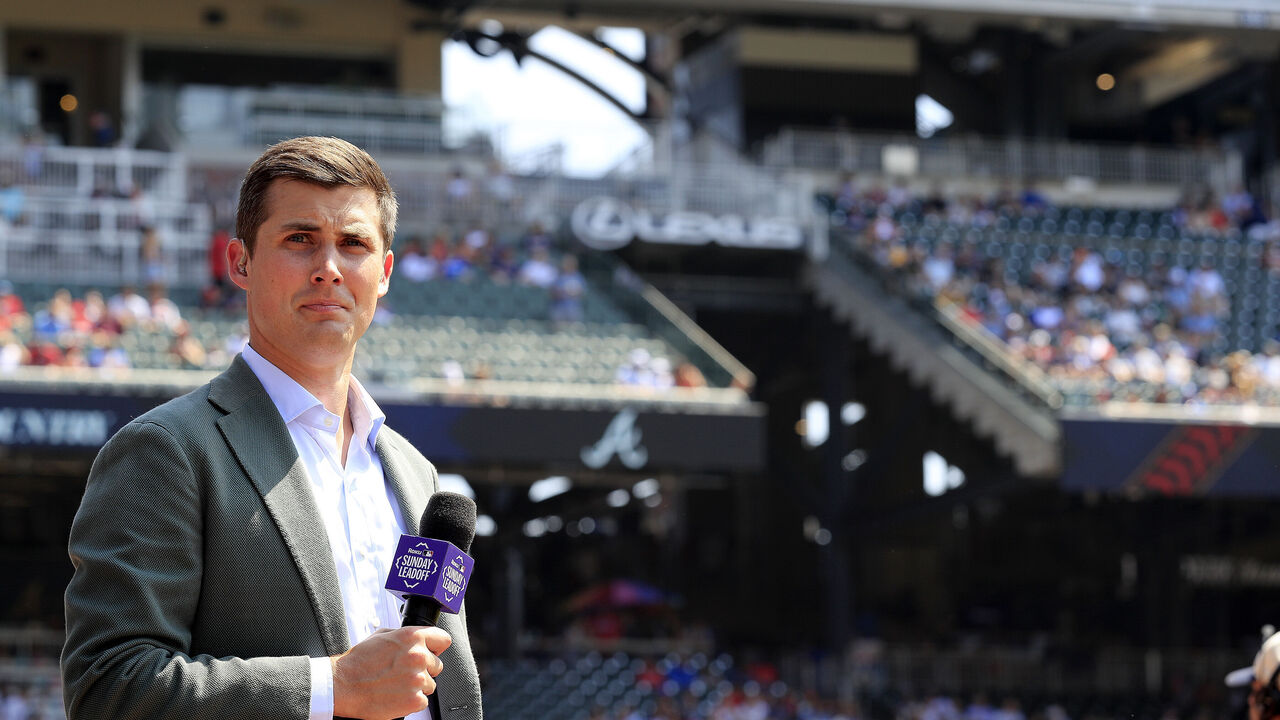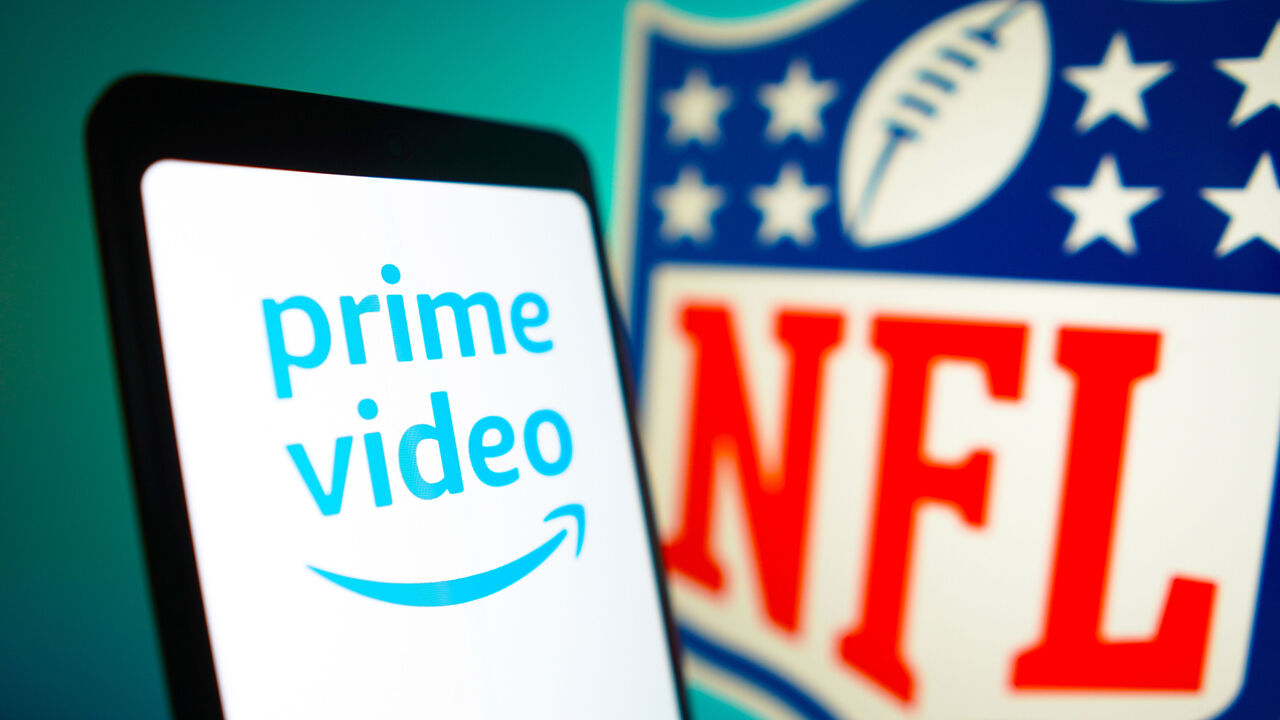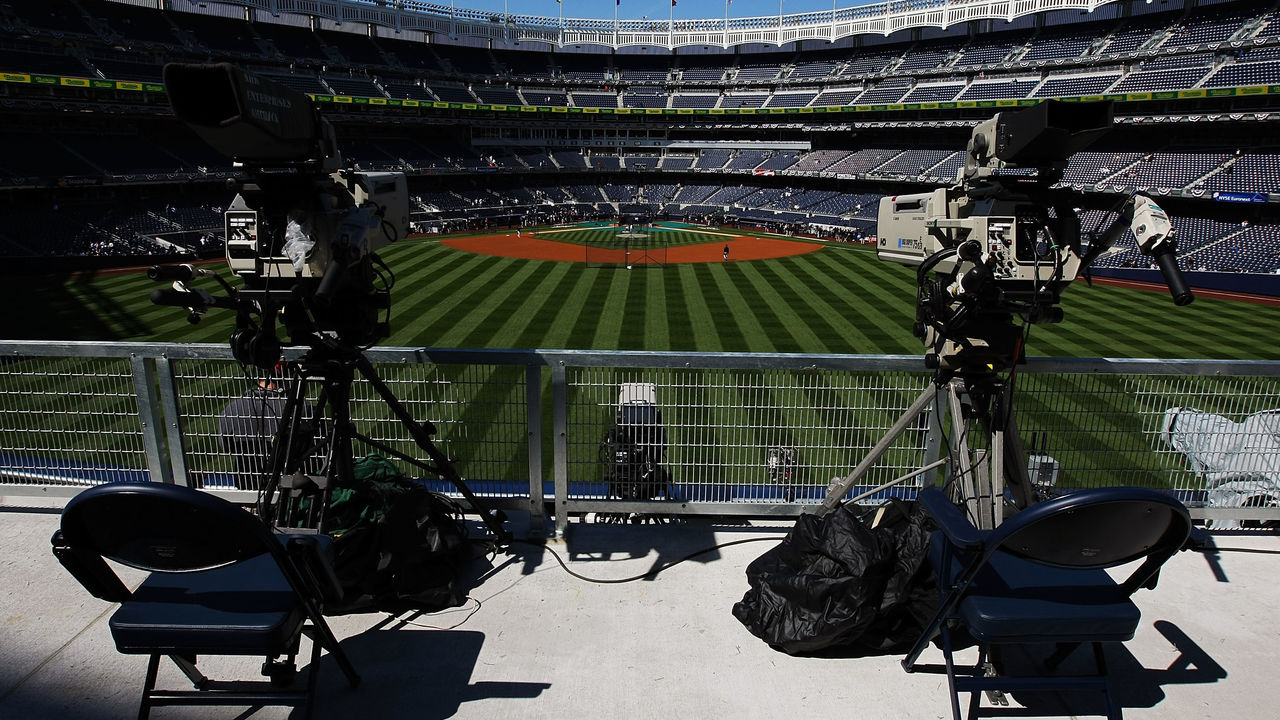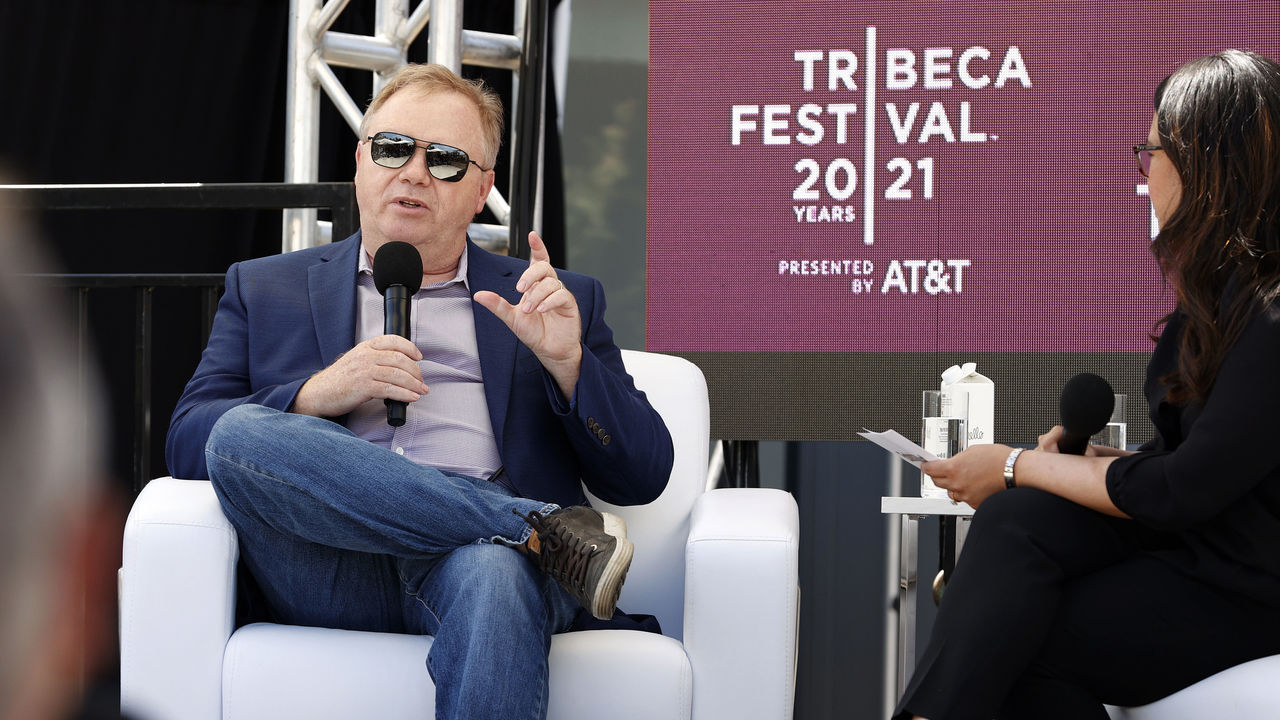Roku hopes to alter the live TV sports landscape with its MLB deal
There was a collective sigh among baseball fans when MLB and Roku announced a deal earlier this season for the streaming giant to buy the rights to MLB's Sunday morning games - Roku's first such deal with a major sports league.
The exasperated exhale was followed by something like this thought, at least on social media: "Not another platform I need access to in order watch games."
But it's this complaint, about the friction fans feel when switching to and from various TV distributors to access games, that drew Roku to live sports.
That friction is the problem Roku wants to help solve, Joe Franzetta, head of sports for Roku media, explained to theScore.
"You're getting more rights fragmentation, more disaggregation of distribution, and as a result, that can cause viewer friction in terms of where you can find what you want to watch," Franzetta said. "When people mention MLB games, they say, 'Oh, they're distributed in a lot of places, how do I find them?' That's what we hope to help solve, creating this one-stop shop."
Roku isn't the only media company interested in addressing the fragmentation plaguing sports fans in today's cord-cutting environment.

Disney (ESPN), Fox, and Warner Bros. Discovery (TNT, TBS) have banded together to create Venu Sports, a sports streaming app, which is targeting a fall launch before the NFL season. The joint venture will be offered at $42.99 per month, Venu announced Thursday.
The concept's bold: all live sports on those companies' traditional, linear cable channels will now be available via the streaming app. Such a service may accelerate cord-cutting. Cable's the more profitable but shrinking business today, and its demise may be unavoidable.
"Our belief is that all TV will be streamed," Franzetta said. "Naturally, that means all sports will be streamed. Leagues and the rights holders (and) the distribution partners are - for the most part - trying to manage that transition."
What that new live TV sports ecosystem looks like isn't yet known. But even with a standalone app like Venu, there will still be fragmentation. For instance, Venu won't include games broadcast by regional sport networks (RSNs). It'll include most but not all NFL games.
Cable had it all under one roof, and with a back button on the remote.

Consider what Greg Bouris, director of the undergraduate sports management program at Adelphi University and who previously worked for a RSN and pro teams, told us earlier this year.
"For all its gripes over the years with how we purchase cable TV, and not having choices, there's something to be said for having it in the streaming world, and how it functions," he said.
Roku's vision is an attempt to address that - to be something like the familiar channel guide of cable TV, the entryway into how we watch.
MLB's an interesting test case for Roku, at a relatively low cost of $30 million total over three seasons for the Sunday slate. MLB's afflicted with the greatest TV friction issues among all major sports.
While Roku may seem like an unusual partner for a pro sports league, the company argues it's the best positioned to reduce the friction issue. Roku's known mostly as a hardware company for smart TVs and streaming devices it produces. But it's also a software company, and its operating system powers most smart TVs. Its app store is something like that of the iPhone but for TVs.
Perhaps most important for MLB, Roku also enjoys rare reach, with some 81 million monthly active users of its platform worldwide, the vast majority residing in North America. That makes its user base greater than that of the combined subscriber base of all cable companies in the U.S. today.
MLB wants its games in front of more viewers. For instance, MLB officials aren't fans of blackouts, broadcast restrictions that are antiquated dynamics of cable deals dating back to the 1980s. They aren't something MLB commissioner Rob Manfred invented. Roku provides a large potential audience that MLB didn't have with Peacock or its own separate streaming app, and increasingly doesn't have with RSN partners.
"It was about reach," one MLB official told me about the Roku agreement.
As Roku grew, it became interested in not only how to distribute third-party content, but its own content. Its latest experiment with live sports, most notably MLB, is a logical next step, Franzetta said.

"It's been a natural evolution," he said. "The initial idea was that because virtually all sports are somewhere on Roku, it made a lot of sense to try and solve for that friction point, and build an aggregated destination - that one-stop shop. That allows us to have a tremendous funnel of viewers that are seeking all different types of sports content."
In June 2023, Roku signed a live sports content deal with Formula E, a minor electric vehicle racing circuit.
Roku created a concept it calls a "zone" for Formula E. The zone's an all-inclusive app for a specific sport, which houses live sports rights Roku owns, but also documentaries, highlights, and other on-demand programming related to the sport. What's different is the zone also allows users to see what other live Formula E events are scheduled, and to access those events with one click even if Roku doesn't own them (the user will need the other app's subscription, if required).
Traditionally, competing media companies would never advertise or allow viewers to easily access programming that isn't their own.

Formula E was a proving ground for how Roku might handle larger live sports TV investment. After MLB ended its agreement this spring with NBC's Peacock to stream games Sunday mornings, Roku entered - on short notice - to fill the void.
Roku created its "MLB Zone" for baseball content with the agreement.
MLB's Sunday morning games anchor it and are free to viewers. But once in the zone's ecosystem, users see the day's other scheduled games and can access them via one click whether they're carried on an RSN or another platform (again, provided the user has access to the necessary subscription - an issue for another day). There are MLB documentaries, highlights, and other on-demand content, too.
"The idea is you have this one-stop shop for all things MLB," Franzetta said.
Roku also launched an "NBA Zone," though it doesn't own any live games aside from the developmental G League.
What it means is that Roku - and possibly competitors like Apple, which streams MLB games Friday nights - could become something of the new cable guide that makes it easier for consumers to find and access sports they want.
What does MLB think of the early experience working with Roku? One MLB source said the early numbers exceed their expectations.
"I think they're very forward thinking," Franzetta said of MLB. "They know the media landscape as well as anybody. They see the trends. MLB TV has been a successful app on our platform for years. They saw the opportunity with us to have a live-rights partner who could provide nationally available games on a free, ad-supported basis but have it be a part of this larger aggregated experience where everything is in one place."
Can there be only one place? That's the dream for fans.
This experiment is still in its initial stages, but when consumers face a problem - fragmentation, in this case - it's up to innovation to solve it.
Perhaps this deal is part of a long-term solution for how we watch.
Travis Sawchik is theScore's senior baseball writer.